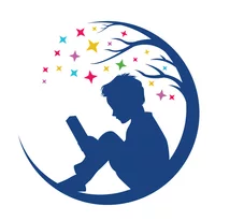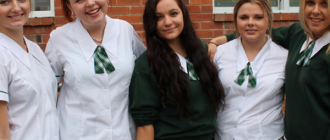What Pre-Teens Say
Here s what pre-teens (in 4th, 5th and 6th grades) had to say before and after learning about coping skills and how their brain works. This data is gathered from 700 written, student self-reports before and after participating in Coping Skills and Brain Works for Kids classroom projects. These results show how effective this type of emotional health education can be in less than three-hours of classroom time.
Self-acceptance (“How much do I like myself.”)
- Before the Project
About half of all pre-teen students say they had difficulty liking themselves.
- After the Project
Four of every 10 students say they NOW like themselves more than before they learned about coping skills and how their brain works.
Learn why some pre-teens and many teenagers might have a harder time liking themselves
Emotional Resilience (“How easily I get over anger and sadness.”)
- Before the Project
About two thirds of all students say they had difficulty getting over anger or sadness.
- After the Project
Among these pre-teen students about one half say they NOW feel confident they can get over their ANGER more easily than before.
Over one-third report they can get over SADNESS more easily than before.
Some Specific Pre-teen Results
This is what 5th grade students recently reported AFTER participating in their Brain Works for Kids classroom project:
- 62% of the students said they now like themselves more than before.
- 71% said the next time I have a painful experience I”ll get over it more easily than before
This is what boys in a recent 4th grade class said AFTER participating in the Brain Works Project:
- 80% of the boys said they now like themselves more than before.
- Before the project only 19% of these boys reported liking themselves most of the time.
- 80% of these same boys said the next time I have a painful experience I”ll get over it more easily than before.
- Before the project only 25% of boys reported having the ability to get over anger easily.
This is what 6th grade students recently reported AFTER participating in their Brain Works for Kids classroom project:
- Before the classroom project with new sixth graders, 60% of boys and girls reported difficulty getting over sadness. After the project, 79% of girls and 59% of boys reported increased confidence in getting over periods of sadness.
Overall, in the history of this project, sadness is found to be far more difficult for pre-teens to deal with than coping with periods of anger.
How Students Self-Assess their Emotional Resilience
Before learning about Brain Works & Coping Skills in the classroom project pre-teen students complete an anonymous survey (revealing only their gender and age). They rate themselves by using scaled responses to questions such as: “When I get angry or sad can I get over each easily “most of the time”; or do I have “difficulty getting over anger or sadness some or most of the time.”

AFTER learning about Brain Works & Coping Skills in their class they again answer these questions by reporting how capable they NOW feel they can get over anger or sadness when they are upset because their feelings are hurt.
How Students Self-Assess their Level of Self-Acceptance
Fourth grade students celebrate completing the Brain Works for Kids project by proudly waving their diplomas. Following their three classroom sessions two-thirds of these students (both boys and girls) reported getting over stressful experiences more easily than before the Brain Works project.
Early adolescence is a key transition time when students are outgrowing childhood self concepts. They begin to experience hormonal changes that lead to changes in their “sense of self.” They become more socially and emotionally aware and sensitive as hormones begin transforming their brain and body. This is why pre-teen years are an ideal time to help students understand that “liking myself” greatly depends on their coping confidence and ability. Even before teenage years, students are beginning to question “How acceptable and lovable am I?” Most pre-teens are eager to learn healthy coping skills since this helps to boost both emotional resilience and the ability to like and accept themselves. This is critical for not only for their emotional health as pre-teens. It becomes a major asset as they enter the emotionally insecure teenage years. A key part of the Brain Works project student self-evaluation research is discovering how much pre-teens currently “like myself” BEFORE and immediately AFTER participating in the classroom project. Their gains in self-acceptance can be amazing after just three brief experiential learning class sessions. Most important, we know that as kids move into their teenage years, they will need both coping confidence and self-acceptance to weather the more intensely felt everyday upsets and stress.
Top






